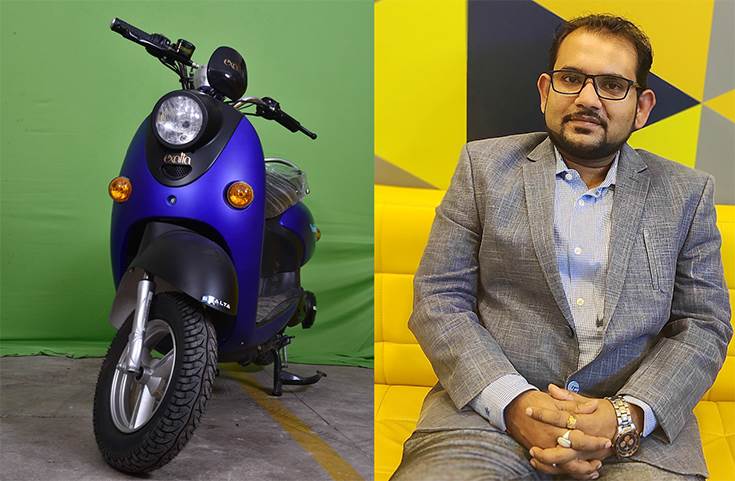By Reuters Staff 1 Min Read FILE PHOTO: Ola Kaellenius, chairman of Daimler AG attends the presentation of the new Mercedes-Benz S-Class at the Daimler production plant in Sindelfingen near Stuttgart, Germany, September 2, 2020. REUTERS/Ralph Orlowski (Reuters) – Daimler AG’s U.S. unit Mercedes-Benz USA said Saturday it is recalling 1.29 million vehicles sold since… Continue reading Daimler recalls 1.29 million U.S. vehicles for software issue
Tag: Recalls
Electric car: Tesla has to recall over 12,000 Model Xs again
Improperly attached decorative elements on the roof of the electric car can fall off while driving and injure other road users. (Tesla, technology) Go to source
GM agrees to $5.75 million settlement with California over ignition switches
By David Shepardson 2 Min Read WASHINGTON (Reuters) – General Motors Co agreed to a $5.75 million settlement to resolve allegations it made false statements to California’s largest pension system and other investors over its deadly ignition switch recalls. FILE PHOTO: The GM logo is seen on a water tank of the General Motors assembly… Continue reading GM agrees to $5.75 million settlement with California over ignition switches
AAM Awarded Next Generation Ram Heavy Duty Axle and Driveshaft program
AAM Terms of Use & Privacy Policy Terms of Use ATTENTION: PLEASE READ THESE TERMS CAREFULLY BEFORE USING THIS WEBSITE. USING THIS WEBSITE INDICATES THAT YOU ACCEPT THESE TERMS. IF YOU DO NOT ACCEPT THESE TERMS (“TERMS”), DO NOT USE THIS SITE. Use of AAM Website American Axle & Manufacturing, Inc. and/or its respective… Continue reading AAM Awarded Next Generation Ram Heavy Duty Axle and Driveshaft program
AAM Reports Fourth Quarter and Full Year 2020 Financial Results
AAM Terms of Use & Privacy Policy Terms of Use ATTENTION: PLEASE READ THESE TERMS CAREFULLY BEFORE USING THIS WEBSITE. USING THIS WEBSITE INDICATES THAT YOU ACCEPT THESE TERMS. IF YOU DO NOT ACCEPT THESE TERMS (“TERMS”), DO NOT USE THIS SITE. Use of AAM Website American Axle & Manufacturing, Inc. and/or its respective… Continue reading AAM Reports Fourth Quarter and Full Year 2020 Financial Results
Tesla must recall 12,300 Model X cars over faulty moulding – KBA
By Reuters Staff 1 Min Read FILE PHOTO: The Tesla Model X car is displayed on media day at the Paris auto show, in Paris, France, September 29, 2016. REUTERS/Benoit Tessier/File Photo FRANKFURT (Reuters) – Tesla must recall around 12,300 Model X cars worldwide due to car body mouldings problems, Germany’s motor vehicle authority (KBA)… Continue reading Tesla must recall 12,300 Model X cars over faulty moulding – KBA
Noida-based Exalta plugs into e-mobility business
Electric vehicles (EVs) and e-mobility are picking up pace in India as is quite visible from their growing sales numbers, as well as the increasing real-world population of these zero-emission modes of transport on the roads. And skyrocketing prices of petrol and diesel could also be a reason. The Covid-driven lockdowns of 2020 have… Continue reading Noida-based Exalta plugs into e-mobility business
GreenPower Reports Fiscal Third Quarter 2021 Financial Results
VANCOUVER, B.C., Feb. 11, 2021 /PRNewswire/ — GreenPower Motor Company Inc. (Nasdaq:GP) (TSXV:GPV) (“GreenPower”), a leading manufacturer and distributor of zero emission electric powered vehicles serving the cargo and delivery, shuttle, transit and school bus markets, today announced financial results for its fiscal third quarter ended December 31, 2020. Highlights of the third quarter: delivered 17… Continue reading GreenPower Reports Fiscal Third Quarter 2021 Financial Results
Ford launches new digital marketplace for used vehicles
Ford Motor Co. on Thursday launched Ford Blue Advantage, a new digital marketplace that will allow its dealers to list and sell certified used vehicles on a single platform — a response to customers looking for a digital shopping experience and an attempt to reclaim market share from upstart digital retailers that have eaten into dealers’… Continue reading Ford launches new digital marketplace for used vehicles
Commercial EV makers losing business as lenders deny loans worried over resale value
Bengaluru: Smooth access to consumer finance has become a hurdle in the sale of commercial electric vehicles (EV) with banks wary of lending, worried over resale and residual value of EVs in the event of loan defaults. Sections of EV firms in the business of manufacture and sale of electric three and four wheelers like… Continue reading Commercial EV makers losing business as lenders deny loans worried over resale value

